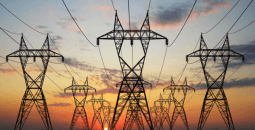

THIS month, Nigeria has seen major news. Manufacturers paid a large amount in taxes, and the stock market improved thanks to strong bank performances. There’s also debate over the Nigerian Navy’s new role in issuing bunkering permits.
Meanwhile, the IMF is urging more support for the poor due to rising fuel prices. These developments are drawing attention to Nigeria’s economic and policy decisions. Before we get into the details, check out https://22bet.co.zm/casino.
The stock market gained last week due to strong results from Zenith Bank and GTBank.
The Nigerian stock market saw a boost this week. The Nigerian Exchange All Share Index (NGX ASI) went up by 1.1%, reaching 97,456.62 points, from 96,433.53 points the week before. Market value also grew by over N607 billion. In fact, it hit N56.001 trillion.
For the month, returns are down slightly by 0.3%, but year-to-date returns have jumped by 30.3%. Trading volumes increased by 20.2%, though the total value dropped a bit by 0.5%. The Banking Index led the way with a 5.1% gain, followed by the Oil and Gas Index (2.0%), Insurance Index (1.6%), Consumer Goods Index (1.5%), and Industrial Goods Index (0.2%). Analysts expect mixed market reactions in the short term. There is a possible profit-taking on recently high-performing stocks and interest in bank stocks.
The Nigerian Navy’s issuance of bunkering permits has sparked controversy. Industry stakeholders call it unusual.
Commodore Igbani Agwu, from the Nigerian Navy, said the Navy had to regulate bunkering permits due to issues like oil theft. He claims this is unique to Nigeria.
However, some argue that oil theft happens globally, and other countries’ navies do not manage commercial shipping activities.
A member of the Nigerian Ship Owners Association (NISA) stated that the Navy’s involvement in permits is unusual and reflects the Navy’s commercial interests.
Capt Tajudeen Alao, President of the Nigerian Master Mariners Association, noted that previously, the Nigerian Customs Service handled these permits. He acknowledged that while oil theft is global, Nigeria’s situation is particularly severe due to unique challenges like extensive creeks.
British Navy officer Commander Dan Wiskett commented that the British Navy does not engage in commercial activities in the UK.
The IMF has advised the Nigerian government to focus on helping the poor as petrol prices rise. Dr. Christian Ebeke from the IMF mentioned that petrol prices are still below market rates, which might lead to higher prices in the future. He highlighted the current economic struggles, including high inflation and recent floods. He also stressed the importance of strengthening social support for vulnerable households.
Ebeke also pointed out that the NNPC’s current petrol prices do not reflect market conditions, causing supply issues. He suggested improving supply stability and competition to benefit consumers.
Regarding economic reforms, Ebeke emphasized that price adjustments should be part of a broader package that includes strong social safety nets to protect the most vulnerable.
Ebeke discussed Nigeria’s economic outlook, highlighting three key points:
Nigeria’s authorities have a bold plan to transform the economy, stabilize the market, promote growth, and tackle poverty. This plan is impressive but acknowledges the significant hardships faced by the population.
There’s a need to help the most vulnerable while reforms are being implemented. Programs like direct payments to households, CNG buses, and support with grains are essential and should be accelerated to ease the pain on Nigerians.
Nigeria faces a major challenge with raising revenue, which is important for funding infrastructure, development, health, and education. The 2025 budget will be important for setting priorities and addressing these challenges.
The focus is on stabilizing the economy, supporting those in need, and finding ways to increase revenue for future growth.
Clifford Egbomeade, a public analyst, said that higher fuel prices without support could worsen economic problems. He noted that fuel subsidies have been a key issue because they stretch government resources but help keep living costs lower for many Nigerians.
The IMF’s push for market prices is about long-term sustainability. But, many Nigerians depend on cheap fuel for transportation, businesses, and power. Without proper support, higher prices could increase hardship in a country already struggling with inflation, unemployment, and poverty.
Egbomeade added that any social safety nets need to be well-managed and transparent to gain public trust. If not, people might lose faith in the subsidy removal and promised protections.
Tajudeen Olayinka, an investment banker, agreed with the IMF’s advice but said the real issue is failing policies. He explained that the economy isn’t adjusting well because the necessary policies and programs aren’t properly coordinated. A successful recovery needs a well-organized adjustment program, which is complex but essential for managing economic change.